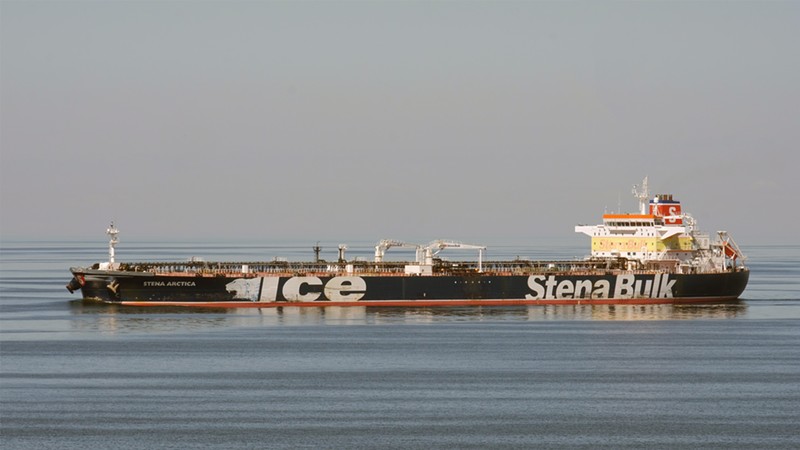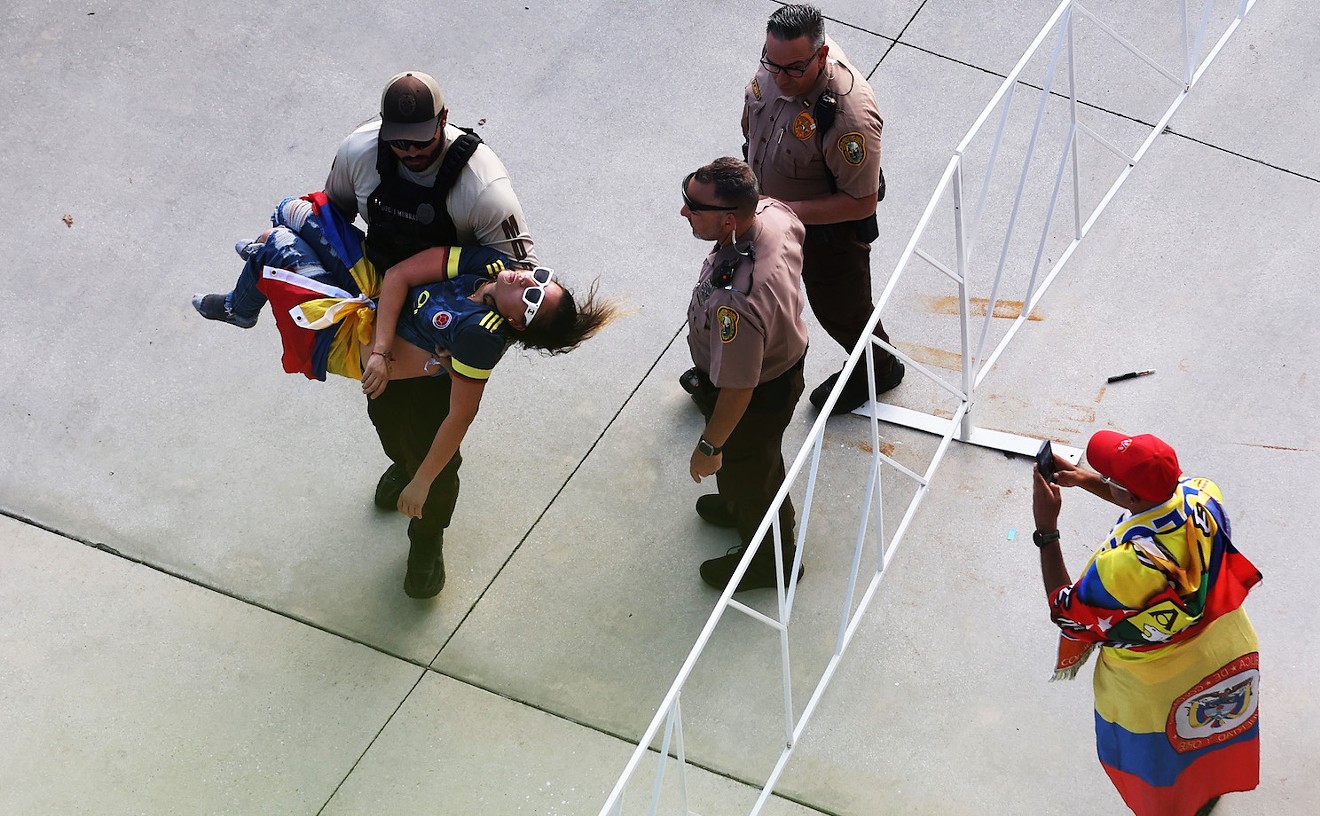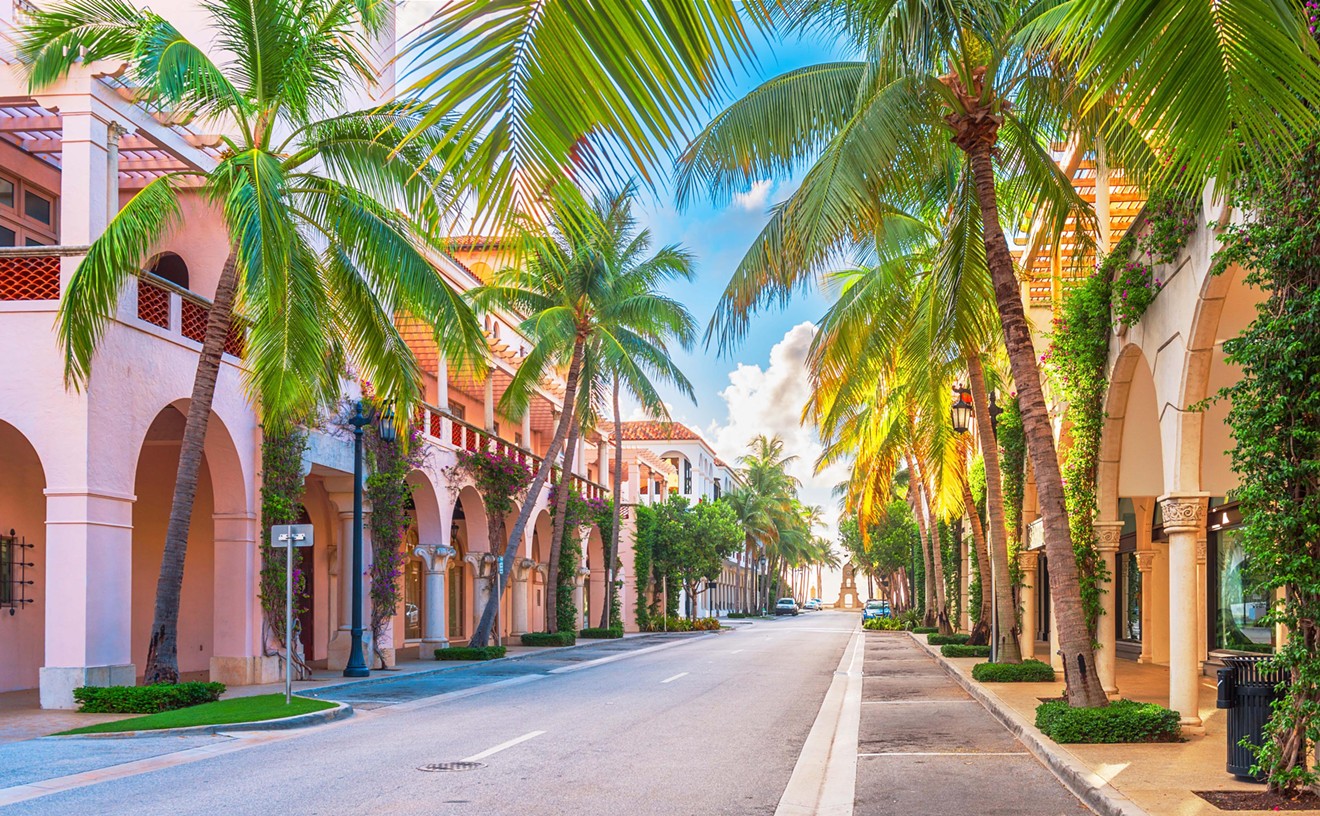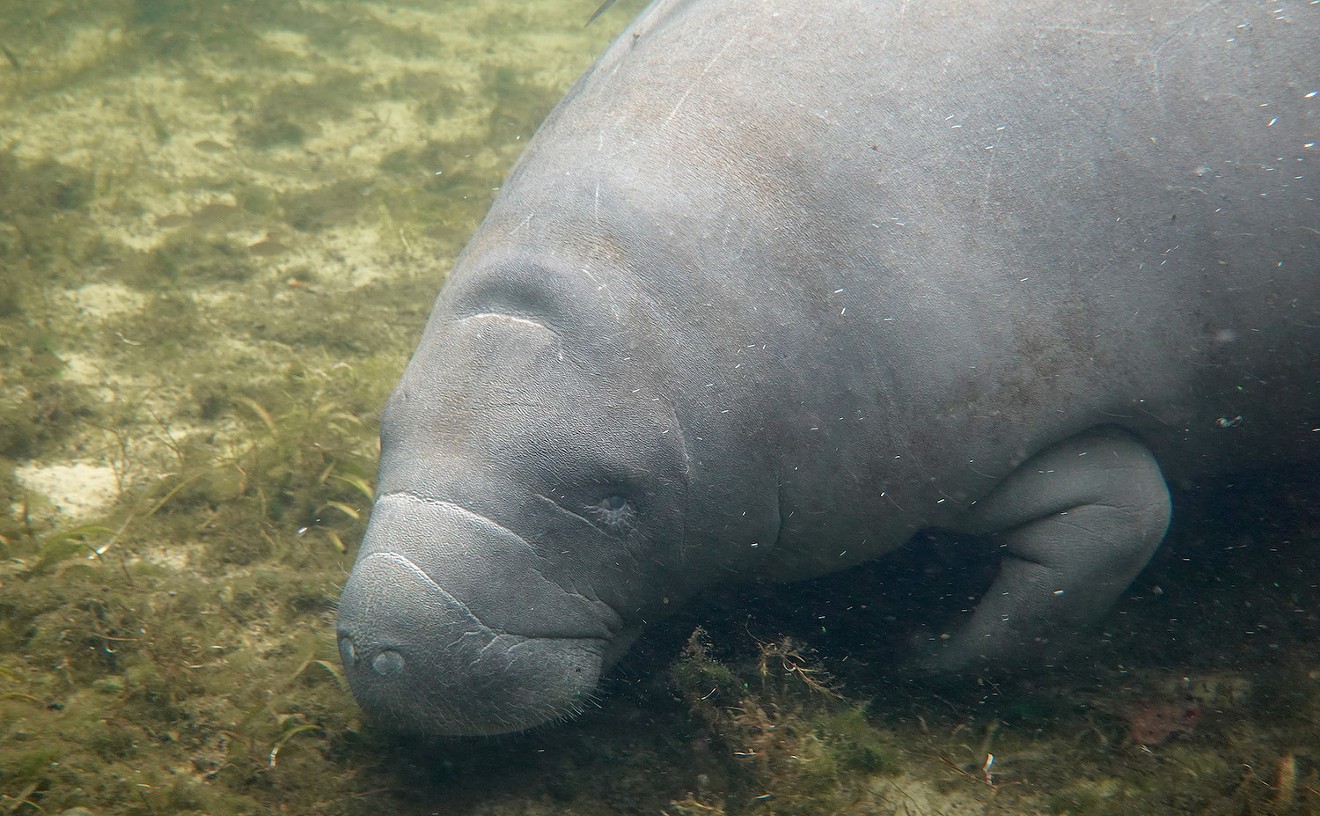Despite an ongoing ban on offshore oil drilling off the coast of Florida, an upcoming exploratory drilling project in the Bahamas could pose a significant risk to Miami's beaches, environmentalists say.
Tomorrow, a vessel called the Stena IceMAX, operated by the Bahamas Petroleum Company (BPC), is set to begin drilling an exploratory well off the shore of the Bahamas to search for pockets of oil. That would be the first well in a series of five the company plans to drill around the Bahamas.
But a number of environmental groups, including the nonprofit Waterkeeper Alliance, have cited concerns about a potential spill.
"Offshore drilling is inherently risky and inherently dirty," says Marc Yaggi, executive director for the Waterkeeper Alliance, a global network that advocates for clean water.
Yaggi tells New Times his organization fears the BPC project has the potential to become the next BP oil spill, which occurred when an oil rig exploded in 2010, causing an exploratory well to release enormous amounts of oil into the Gulf of Mexico, where some reached Florida's shores and killed droves of marine life.
Reached by New Times via email, a spokesperson for BPC sent a link to the company's environmental page, which states that the drilling project plan meets all guidelines, Bahamian laws, and international standards.
But a technical review of BPC's environmental management plan commissioned by Waterkeeper Alliance and provided to New Times found the company has failed to address all the environmental impacts of drilling, to identify potentially environmentally sensitive areas, or to create a sufficient contingency plan in the event of a major or minor oil spill.
Further, Waterkeeper's review of the environmental plan found that the company's plan characterizes the project as a series of small wells, rather than one big project that could have an adverse cumulative effect, since each well will release pollutants even if there is no spill.
"This approach is often referred to as 'the one free bite approach' when, in fact, the overall impact of a project would be quite significant. By portraying the project as a series of small pieces, the full impact of the entire project is understated and misleading," the technical review states.
If the project is allowed to start and a spill occurs, the effects could be catastrophic to the Bahamas economy, says Rashema Ingraham, executive director of the Bahamas Waterkeeper. Ingraham and a number of local nonprofits, businesses, and fishermen have joined together as part of the Our Islands, Our Future coalition to fight the project, saying any accident would deal a major blow to fishing and tourism.
"There are 120,000-plus jobs at risk for a population of just around 400,000 people," Ingraham tells New Times. "So many fishermen use the Great Bahama Bank for their fishing grounds, and that's really at risk. The intended drilling will not be far from there. There's no way around the fact that drilling is dangerous."
Ingraham says the project not only poses a risk to thousands of Bahamians, but also to Floridians if a spill occurs.
"A spill could affect Key West, Miami Beach, and Fort Lauderdale. Oceanic currents will push the oil to Florida's shoreline," Ingraham says.
Effects of the BP oil spill still linger to this day, harming fish populations and causing lasting effects for human health. Ingraham fears a spill in the Bahamas could have a similar impact on Floridians, especially those who make a living fishing near the drilling zones.
In order to fight the oncoming drilling, Our Islands, Our Future and the Waterkeeper Alliance are spreading a petition they will send to the Bahamas government to urge them to stop the project. As of now, the petition has more than 56,000 signatures. Ingraham says she hopes Floridians can also take part in the fight, considering the potential risks to the Sunshine State if something were to go wrong.
"People can sign the petition and state why exactly they are signing it. They don't need something from another country affecting them," she says. "Write a letter to your elected officials telling them about the oil drilling and how it will affect them."
Ingraham says the coalition also plans to sue the company in Bahamas court, with hopes of pausing the drilling until the case can be decided.
[
{
"name": "Air - MediumRectangle - Inline Content - Mobile Display Size",
"component": "19274298",
"insertPoint": "2",
"requiredCountToDisplay": "2",
"watchElement": ".fdn-content-body",
"astAdList": [
{
"adType": "rectangle",
"displayTargets": "mobile"
}
]
},{
"name": "Editor Picks",
"component": "17482312",
"insertPoint": "4",
"requiredCountToDisplay": "1",
"watchElement": ".fdn-content-body",
"astAdList": [
{
"adType": "rectangle",
"displayTargets": "desktop|tablet"
},{
"adType": "rectangle",
"displayTargets": "desktop|tablet|mobile"
}
]
},{
"name": "Inline Links",
"component": "18711090",
"insertPoint": "8th",
"startingPoint": 8,
"requiredCountToDisplay": "7",
"maxInsertions": 25
},{
"name": "Air - MediumRectangle - Combo - Inline Content",
"component": "17482310",
"insertPoint": "8th",
"startingPoint": 8,
"requiredCountToDisplay": "7",
"maxInsertions": 25,
"watchElement": ".fdn-content-body",
"astAdList": [
{
"adType": "rectangle",
"displayTargets": "desktop|tablet"
},{
"adType": "rectangle",
"displayTargets": "desktop|tablet|mobile"
}
]
},{
"name": "Inline Links",
"component": "18711090",
"insertPoint": "8th",
"startingPoint": 12,
"requiredCountToDisplay": "11",
"maxInsertions": 25
},{
"name": "Air - Leaderboard Tower - Combo - Inline Content",
"component": "17482313",
"insertPoint": "8th",
"startingPoint": 12,
"requiredCountToDisplay": "12",
"maxInsertions": 25,
"watchElement": ".fdn-content-body",
"astAdList": [
{
"adType": "leaderboardInlineContent",
"displayTargets": "desktop|tablet"
},{
"adType": "tower",
"displayTargets": "mobile"
}
]
}
]












